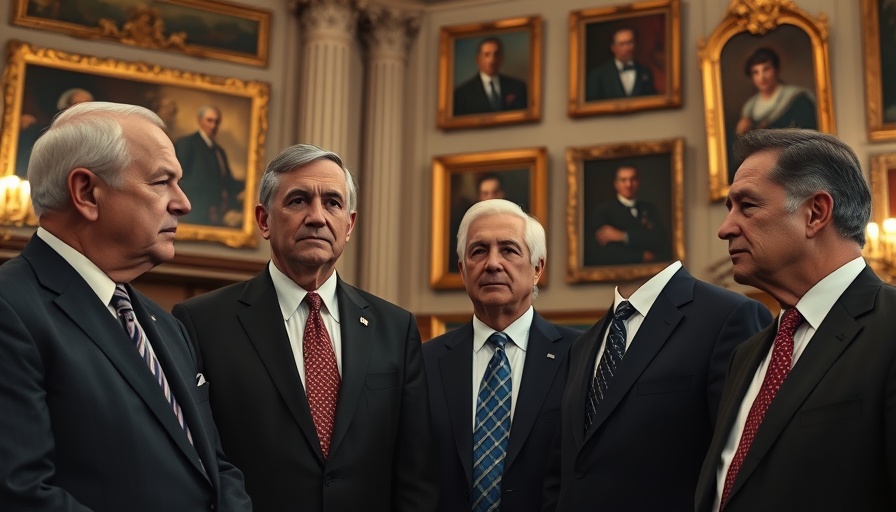
Bay Area Leaders Unite Against Trump’s Tax and Policy Bill
In a decisive backlash against President Donald Trump’s newly passed tax and policy bill, Bay Area Democratic leaders are vocalizing their concerns, highlighting the potential detrimental effects this legislation could have on ordinary Americans. Local representatives argue that this isn’t just a matter of fiscal policy; it’s a profound political move that favors the wealthy while ignoring the welfare of the majority.
Concerns Over Health Care and Social Safety Nets
Among the staunchest opponents is South Bay Democratic Representative Zoe Lofgren, who articulated fears for those relying on essential social services. She remarked, “Americans will face harmful cuts to their health care and food assistance.” The stark reality is that over 2 million Californians could find themselves without adequate healthcare support. With so much at stake, opponents argue this bill could precipitate closures of hospitals and clinics that are already overstretched.
The Impact on Low-Income Families
Further echoing these concerns, East Bay Representative Mark DeSaulnier has taken the podium, drawing attention to a credible Congressional Budget Office estimate. He warns that Medicaid cuts could strip health care from 17 million Americans, a devastating overhaul designed to benefit ultrawealthy individuals. The ripple effects could cripple low-income families, further widening the disparity gap.
Business Euphoria Versus Public Outcry
Contrastingly, the White House and many business organizations laud the bill, promising it will lead to lower taxes and increased take-home pay for workers. U.S. Chamber of Commerce chief policy officer Neil Bradley stated that the tax provisions “will not only drive economic growth but also put more money in workers’ pockets.” This reveals a stark divergence in perspectives—the administration sees opportunity while many lawmakers view impending hardship.
The Financial Implications of the Bill
Critics are wary of what the long-term consequences might be. Non-partisan research from The Tax Foundation delves into the numbers, estimating the bill would slash federal tax revenue by around $5 trillion by 2034. This loss in proportionate revenue raises the alarm over sustainable fiscal policy and responsibility.
Vocal Resistance from Bay Area Democrats
Prominent figures in the Bay Area, including former House Speaker Nancy Pelosi, have openly criticized the bill, dubbing it the “Republicans’ One Big, Ugly Bill.” She emphasizes that it proposes taking healthcare from millions while deepening the nation’s debt by $4 trillion just to benefit the richest. Her clarion call to action, “House Democrats will fight to stop it,” resonates deeply with constituents worried about their future.
Understanding the Broader Context
This budget measure is pivotal, as it aims to make permanent numerous tax cuts previously enacted during Trump’s first term. However, the economic theory often posited by proponents—that tax breaks for the wealthy stimulate the economy—remains contentious among economists. Many fear historical patterns may simply repeat themselves where the rich get richer, and the lower-income populace bears the brunt of government austerity.
What Lies Ahead for California?
California, particularly the Bay Area, stands at the intersection of these fiscal policies. With a progressive legislative history, local leaders are mobilizing constituents to resist further inequities. Questions loom as to how the Republican-majority House will navigate the passage of the bill. Will they side with lower-income families or acquiesce to the wealthiest segments? That narrative is still unwritten, but the urgency here is apparent for the community as they watch closely.
Potential Alternatives Offered by Democrats
Democratic leaders are calling for a reevaluation of this spending bill to prioritize all American families—a change they believe is crucial for the health of the nation’s fabric. Proposed alternatives encompass investments in healthcare and education, which they argue are foundational to a growing, healthy economy. Proponents of these solutions advocate for early intervention that could salvage and even bolster the lives of millions rather than cater exclusively to the affluent.
Concluding Thoughts: The Call for Action
The dialogue surrounding President Trump’s tax and policy bill embodies a microcosm of a broader ideological struggle within America. As representatives rally against legislation that could grapple with the very structure of U.S. social services, one thing remains clear: citizens need to stay engaged, informed, and poised for advocacy. With the health of a nation hanging in the balance, the time to act is now—join local efforts to voice concerns and demand a fairer future for all Americans.
 Add Row
Add Row  Add
Add 




 Add Row
Add Row  Add
Add 

Write A Comment